15 Warning Signs Your Dog Needs Immediate Vet Care
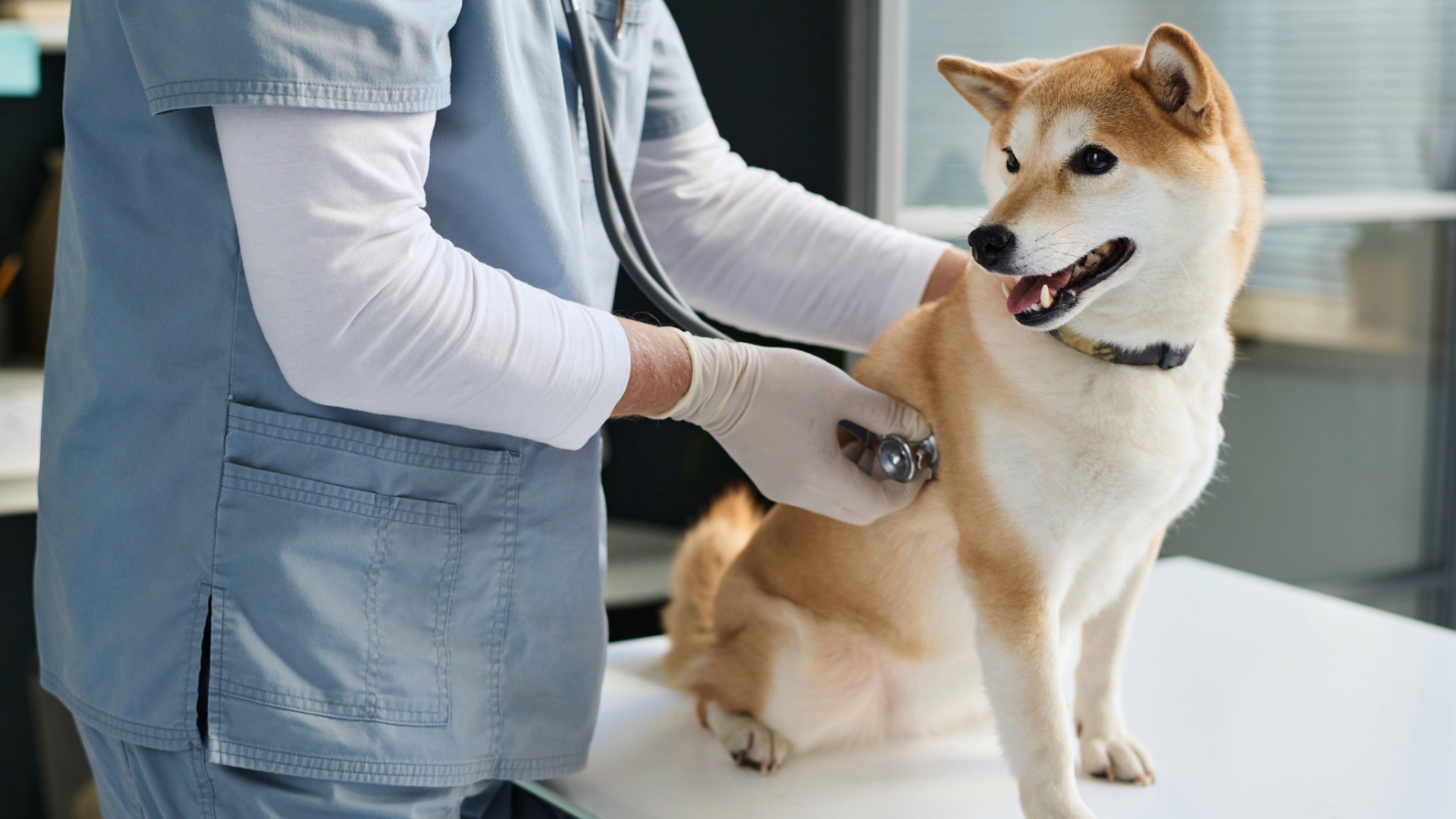
Dogs are more than just pets; they’re family. As loving pet parents, it’s our responsibility to be vigilant about our furry companions’ health.
While some symptoms are easy to overlook, recognizing the early signs that something’s amiss can make all the difference in ensuring your dog receives the care they need.
From quirky behaviors to obvious distress signals, here are some warning signs that indicate your dog might need immediate vet attention.
1. Unusual Lethargy

When your dog, who is usually a whirlwind of energy, suddenly starts channeling their inner couch potato, it’s time to raise an eyebrow. Sure, we all have our off days, but prolonged lethargy in dogs can signal underlying issues that need addressing. If your pup seems more interested in napping through their walk time, a vet visit might be in order. Lethargy can be caused by anything from minor infections to more serious conditions like heart disease.
Before you get too worried, remember that a dog’s energy levels can also fluctuate with age or changes in routine. However, if your usually enthusiastic canine is acting more like a sleepy sloth, it’s a sign to consult your vet. Don’t let your dog hit snooze on their health. Pay attention to additional symptoms, such as loss of appetite or difficulty breathing, which could give you more clues about their condition.
While a lazy day here and there is normal, consistent low energy requires medical attention to rule out serious health issues. It’s always better to be safe than sorry when it comes to your furry friend’s well-being.
2. Persistent Vomiting
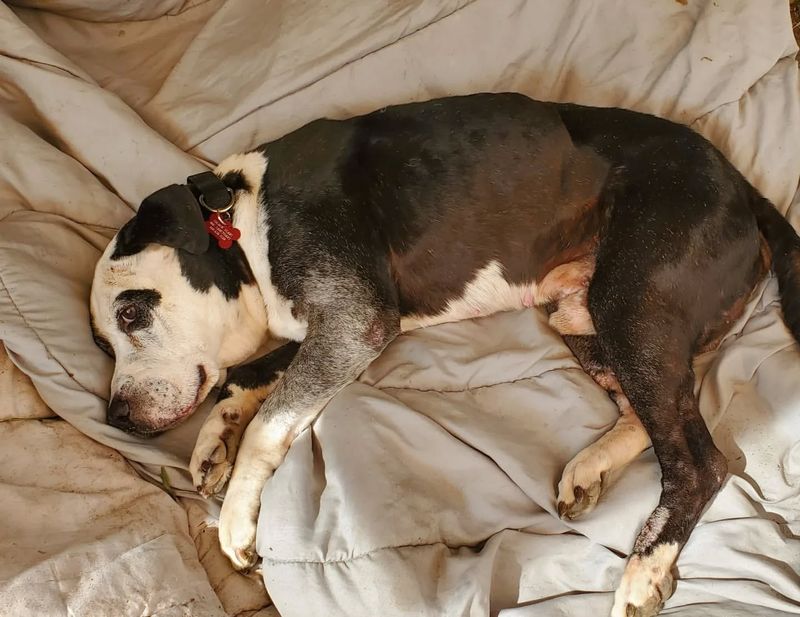
If your dog is playing the part of a canine fountain, it’s not just a messy inconvenience; it’s a sign that something’s not quite right. Occasional vomiting isn’t unusual – dogs have a knack for eating things they shouldn’t. But if it’s happening repeatedly, it’s time to take note.
Persistent vomiting can dehydrate your pet quickly, especially if they’re also having trouble keeping water down. It could be a symptom of anything from dietary indiscretion to more serious conditions like pancreatitis or poisoning. A dog’s stomach is supposed to be like Fort Knox, so if they’re throwing up more than a frat boy on game day, it’s a clear signal to call the vet.
Keep an eye on the consistency and color of the vomit, as it might provide clues about the underlying issue. Blood or foreign objects are a canine version of a red flag. Remember, your dog can’t tell you how they’re feeling, so it’s crucial to act on these signs. Immediate veterinary care can prevent complications and get your pup back to their tail-wagging self.
3. Difficulty Breathing

When your dog sounds like they’ve spent too long at the gym after sprinting up a single flight of stairs, it’s a cause for concern. Breathing difficulties can appear as wheezing, coughing, or just an unusual struggle to catch their breath. While some panting is normal, especially after a vigorous game of fetch, persistent breathing issues should never be ignored.
Dogs rely on efficient breathing for everything from playtime to meal time, so any disruption can be distressing. It might be due to something as simple as a respiratory infection or as serious as heart disease. Either way, if your pooch is suddenly auditioning for a role in a canine wind ensemble, it’s time for a vet visit. Don’t wait for things to get worse.
Breathing is vital for your dog’s health, just as it is for us. Prompt attention from a veterinarian can address the root cause and bring relief to both you and your pet.
4. Sudden Weight Loss
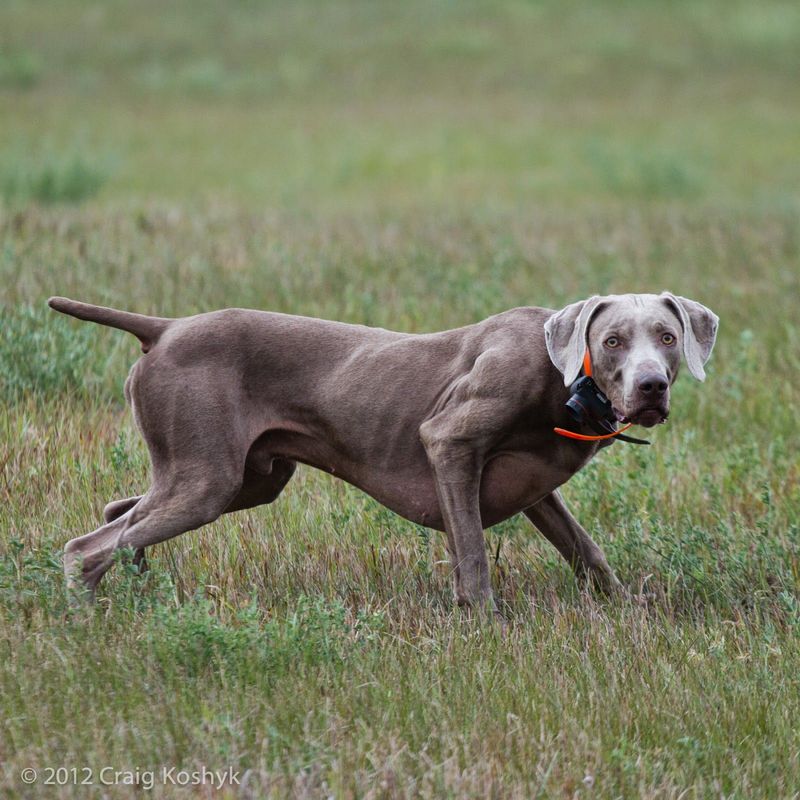
Sudden weight loss can be a serious indication of underlying health issues, ranging from metabolic disorders to cancer. Dogs are meant to gain or lose weight gradually, so rapid changes can be alarming. A quick drop in weight can affect your dog’s energy levels, coat condition, and overall vitality. It might be tempting to think your dog has discovered a new canine workout regime, but it’s more likely a sign that something’s amiss.
Skipping meals or losing interest in food can contribute to weight loss and signal an underlying problem. If your pup’s figure is resembling more of a greyhound than their usual self, it’s time for a veterinary check-up. The vet can determine the cause through tests and guide you on the best course of action.
Whether it’s adjusting their diet or treating a condition, early intervention is key to restoring your dog’s health and ensuring they’re at their best.
5. Persistent Cough
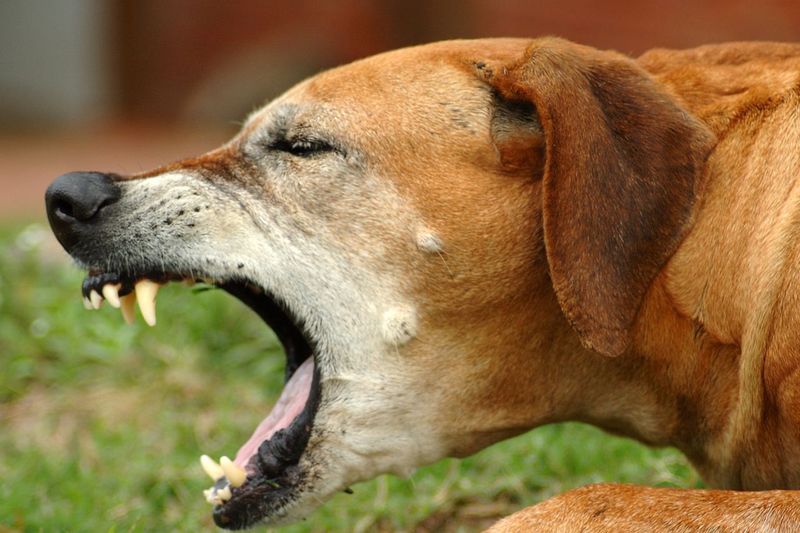
A persistent cough is not just annoying for you and your pooch; it can indicate a range of health issues that need addressing. While an occasional cough is normal, especially if your dog has been exploring dusty nooks, constant coughing needs attention.
From kennel cough to heart disease, a persistent cough can be a symptom of various conditions. It’s important to note when the cough occurs and whether it’s productive or dry, as these details can help vet diagnose the issue. A cough might be your dog’s way of expressing that something is irritating their throat or lungs. Monitoring your dog’s behavior and cough pattern can provide useful information for the vet.
It’s not just about cough syrup and rest; understanding the root cause is essential for effective treatment. Early diagnosis and treatment can prevent complications, ensuring your dog can continue to enjoy their days free from discomfort.
6. Refusing Food
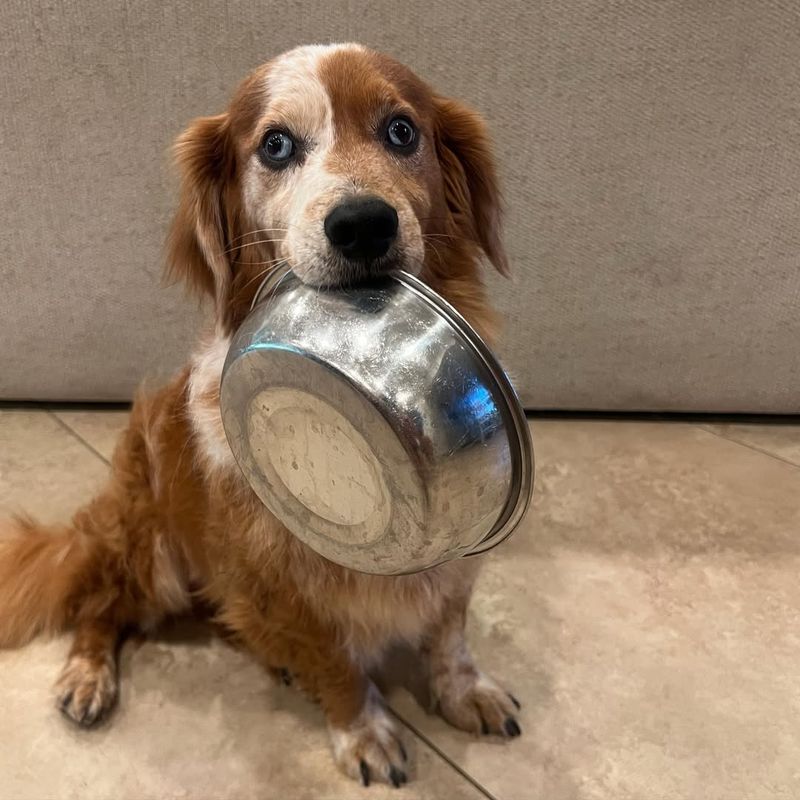
When your dog gives you the cold shoulder during meal times, it can be more than just picky eating. Dogs have a reputation for being opportunistic eaters, so when they refuse food, it sends up a red flag. Loss of appetite can be an early sign of various health issues, from dental problems to systemic diseases.
Skipping a meal here and there isn’t uncommon, especially if your dog has been sneaking treats behind your back. However, prolonged refusal to eat is a different story. It can lead to malnutrition and weaken your dog’s immune system, making them susceptible to infections.
Don’t let it become a pattern before seeking veterinary advice. Apart from health issues, stress and environmental changes can also affect a dog’s appetite. If your dog is turning their nose up at food more often than not, it’s time for a vet check-up.
Identifying the underlying cause can lead to appropriate treatment, ensuring your furry friend gets back to their regular eating habits.
7. Unusual Aggression

Unusual aggression can be a signal that your dog is experiencing discomfort or stress. While some dogs have a grumpy side, a sudden change in temperament is a reason to investigate. Pain is often a driving factor behind aggression, as is fear or anxiety.
If your dog is snapping at family members or other pets, it could be their way of communicating distress. Pay attention to when the aggression occurs and any triggers that might be involved. It’s not just about discipline; it’s about understanding the root cause. A vet visit can help identify potential health issues contributing to this behavior change.
Whether it’s due to pain, hormonal imbalances, or environmental factors, addressing the cause can help restore harmony in your home. Your dog isn’t trying to be a drama queen—they’re asking for help in the only way they know how.
8. Frequent Sneezing

Ah-choo! If your dog sounds like they’ve come down with a case of the sneezes, it might not just be the dust bunnies playing havoc. Frequent sneezing can indicate allergies, infections, or other irritations in your pup’s nasal passages. While an occasional sneeze can be cute, a constant stream is not.
Dogs can be sensitive to pollen, dust, and even certain scents, just like humans. If you notice your dog sneezing more than usual, it’s a sign to check their environment for potential irritants. However, if sneezing is accompanied by a runny nose or other symptoms, it’s best to seek veterinary advice.
With proper diagnosis and treatment, your dog can return to their usual self, free from the annoyance of constant sneezes. It’s not just about tissues – it’s about ensuring your furry friend’s comfort and health.
9. Bloody Diarrhea

When your dog’s bathroom habits suddenly take a turn for the alarming, it’s not something to ignore. Bloody diarrhea can be a sign of a severe underlying issue, from gastrointestinal infections to more serious conditions like parvovirus. It’s a red flag that warrants immediate veterinary attention.
Diarrhea itself can cause dehydration and electrolyte imbalances, but when blood is present, it indicates inflammation or bleeding in the digestive tract. Your dog’s diet, recent travel history, and exposure to other animals can provide clues for your vet. It’s not just about cleaning up a mess – it’s about understanding the cause. Prompt veterinary care can diagnose the problem, whether it’s a simple dietary upset or a more complex medical condition.
Early intervention is crucial to prevent complications and ensure your dog’s recovery. So, if your dog’s bathroom breaks have turned into a crime scene, make that vet appointment without delay.
10. Excessive Itching

When your dog starts scratching like they’re auditioning for a flea circus, it’s time to take notice. Excessive itching can be caused by a variety of factors, from fleas and ticks to allergies and skin infections. While an occasional scratch is normal, constant itching is not.
Your dog’s skin is their first line of defense, and when it’s compromised, it can lead to secondary infections and other health problems. Pay attention to any changes in their coat or skin, such as redness or bald spots.
It’s not just about the itch – it’s about what’s causing it. A vet can help identify the underlying issue, whether it’s a pesky parasite or an allergic reaction.
With proper treatment, your dog can find relief from the constant itch and return to their usual, comfortable self. It’s all about ensuring your furry friend is as comfortable as possible, free from the irritation of incessant itching.
11. Seizure Activity
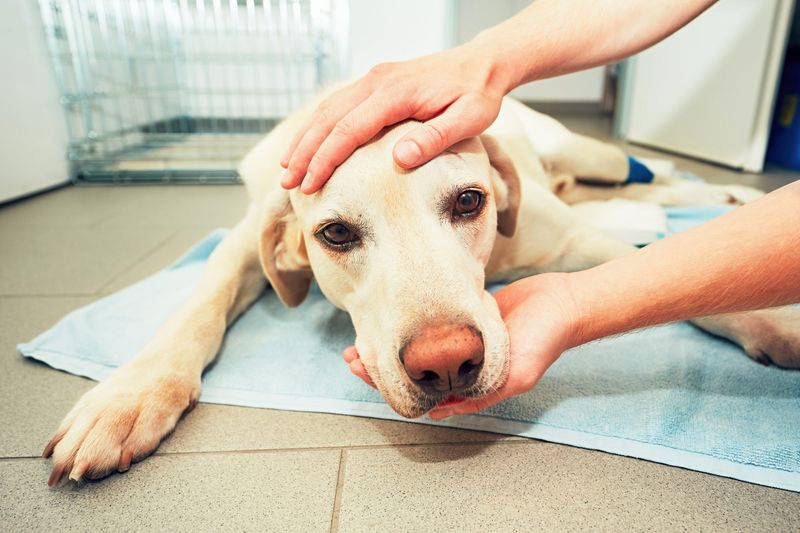
Seizure activity can vary from mild twitching to full-blown convulsions, and it’s a clear sign that something’s not right. While it might be tempting to panic, staying calm is crucial. Seizures can be caused by a range of factors, including epilepsy, toxins, or underlying medical conditions.
Documenting the seizure’s duration and any triggers can provide valuable information for your vet. It’s not just about the seizure itself – it’s about understanding what caused it. If your dog experiences a seizure, it’s important to keep them safe and seek veterinary advice promptly.
A vet can determine the cause and recommend treatment options to manage the condition. Ensuring your dog’s safety during a seizure and getting the right care can help them live a healthy, happy life.
12. Sudden Limping
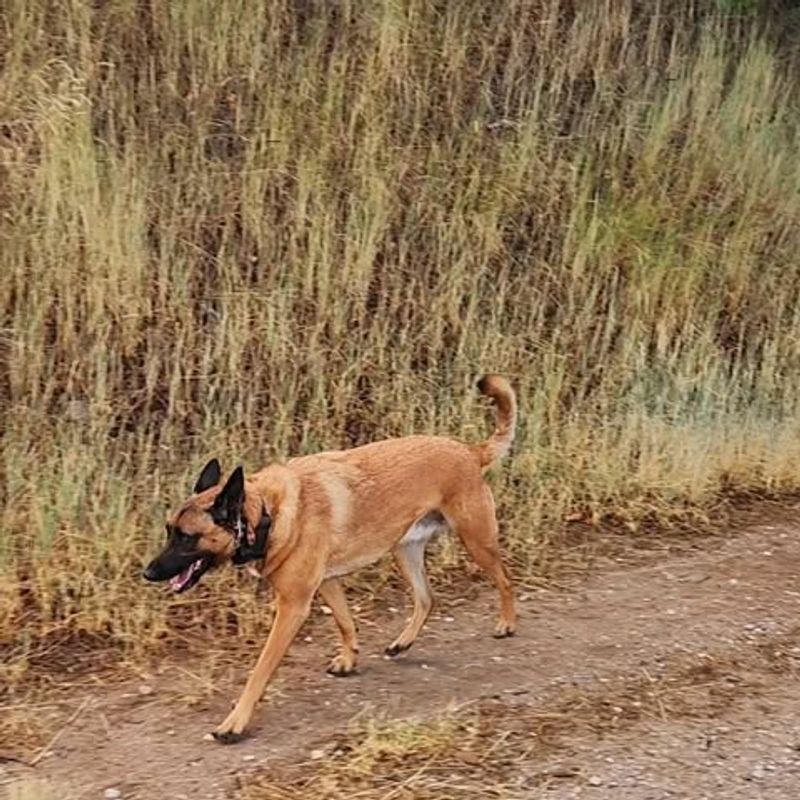
When your dog suddenly starts limping like they’re auditioning for a role in a pirate movie, it’s a sign that something’s amiss. Sudden limping can indicate a range of issues, from minor injuries to more serious conditions like fractures or ligament tears.
While it might seem like an isolated incident, it’s worth investigating. Your dog’s mobility is key to their quality of life, and any disruption can be concerning. Pay attention to which leg seems affected and whether it’s accompanied by swelling or pain.
Early intervention can prevent further injury and ensure your dog returns to their usual, active self. So, if your dog is hobbling like they’ve just stepped off a pirate ship, it’s time for a check-up.
13. Swollen Abdomen

A swollen abdomen can be a sign of several serious conditions, from bloating to internal bleeding. While a little post-dinner bulge is normal, a sudden or persistent swelling is not. Your dog’s abdomen should be firm but not hard, and any changes warrant a closer look.
Swelling can cause discomfort and affect their ability to move or breathe. It’s not just about the size – it’s about understanding what’s happening inside. A vet can perform tests to determine the cause of the swelling and recommend the appropriate treatment.
Whether it’s a dietary issue or a more serious condition, early intervention is crucial. So, if your dog’s belly is turning heads for the wrong reasons, it’s time to visit the vet and get to the bottom of it.
14. Cloudy Eyes
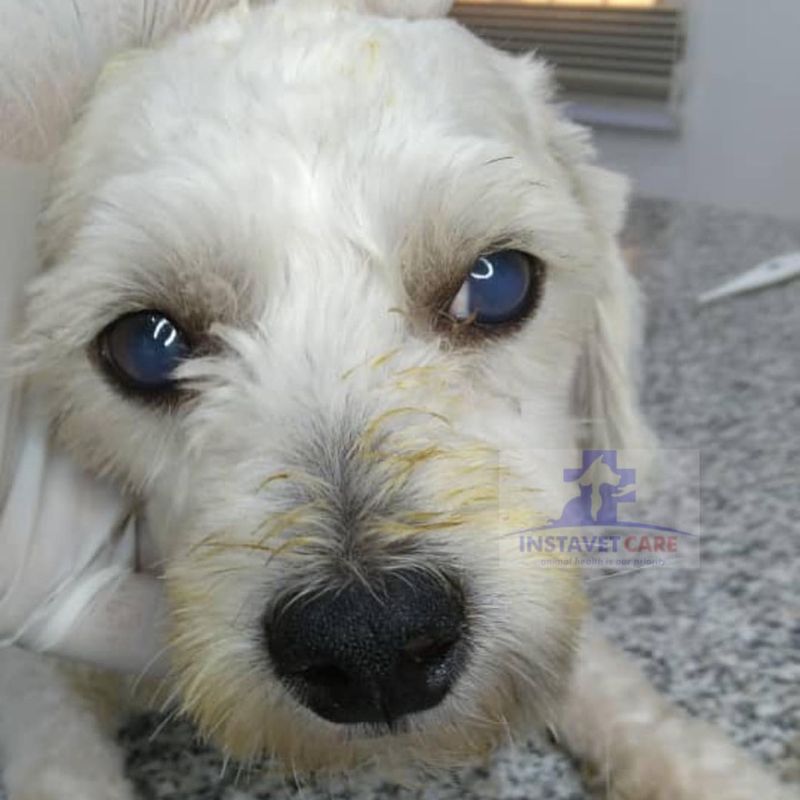
Cloudy eyes can be an early sign of cataracts, glaucoma, or other vision issues. While some cloudiness is normal with age, a rapid change is not. Your dog’s eyes are their window to the world, and any changes can affect their ability to navigate their environment.
Pay attention to any accompanying symptoms, such as redness or excessive tearing. A vet can examine your dog’s eyes and determine the cause of the cloudiness, recommending treatment to preserve their vision.
Early intervention can slow the progression of vision loss and ensure your dog continues to enjoy their surroundings. So, if your dog’s eyes are getting misty for the wrong reasons, it’s time for a vet visit.
15. Collapse or Fainting

When your dog suddenly collapses as if they’ve had a dramatic fainting episode, it’s not something to take lightly. Collapse or fainting can indicate serious health issues, from heart problems to neurological disorders. It’s a clear signal that immediate veterinary attention is needed.
Your dog’s ability to stay upright is crucial to their well-being, and any sudden loss of consciousness is cause for concern. Documenting the event and any preceding symptoms can help the vet diagnose the issue. It’s not just about the faint—it’s about understanding the underlying cause.
Early intervention is key to managing the condition and ensuring your dog’s health and safety. So, if your dog has taken on the role of a swooning movie star, it’s time for a vet visit to get to the heart of the matter.
